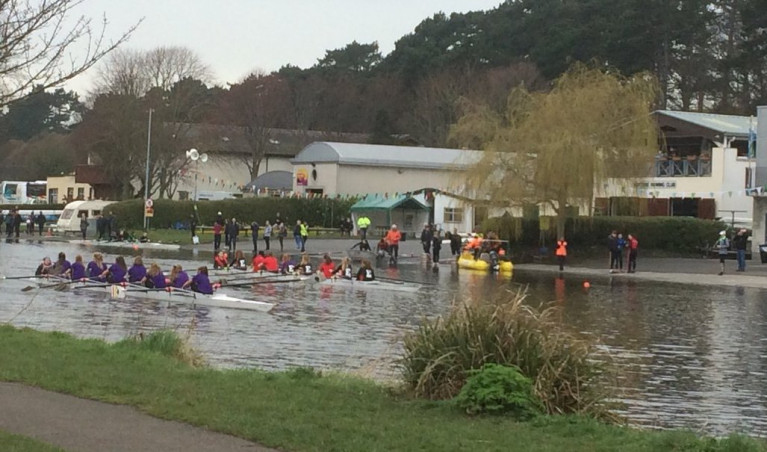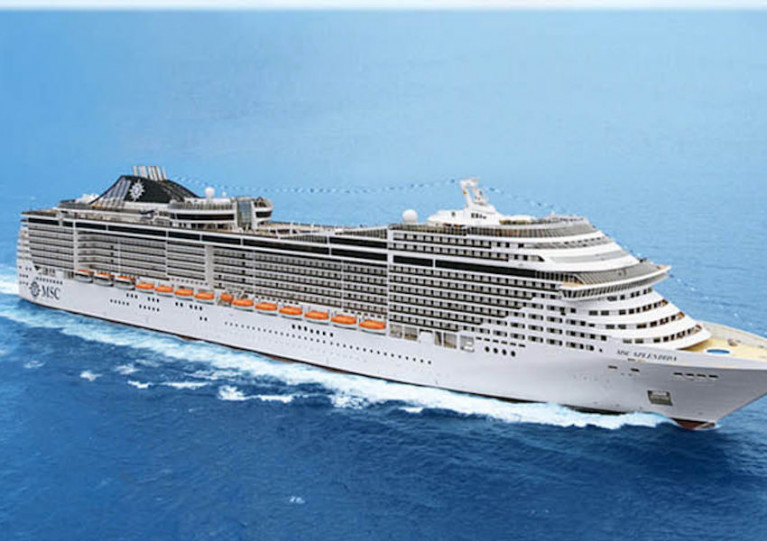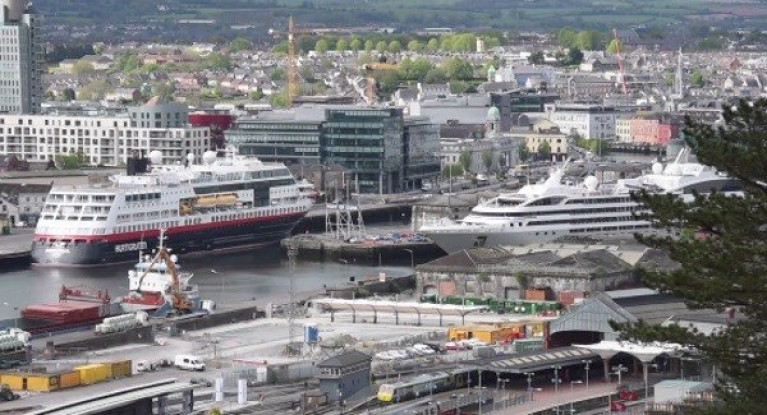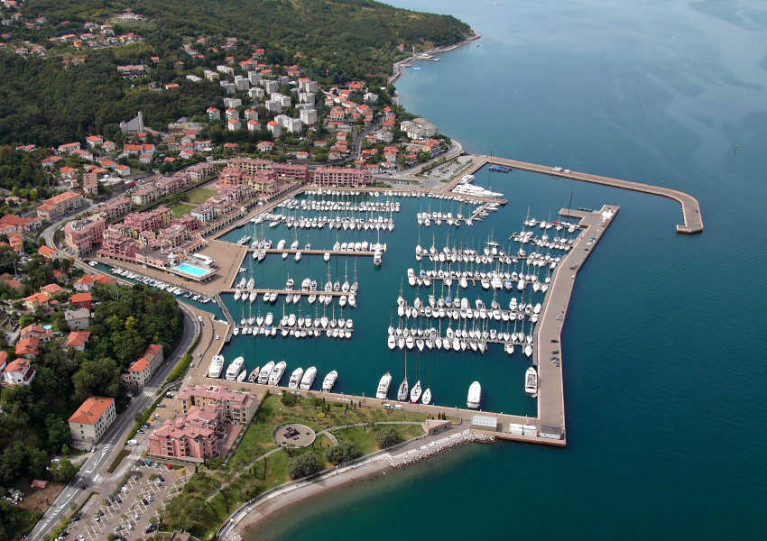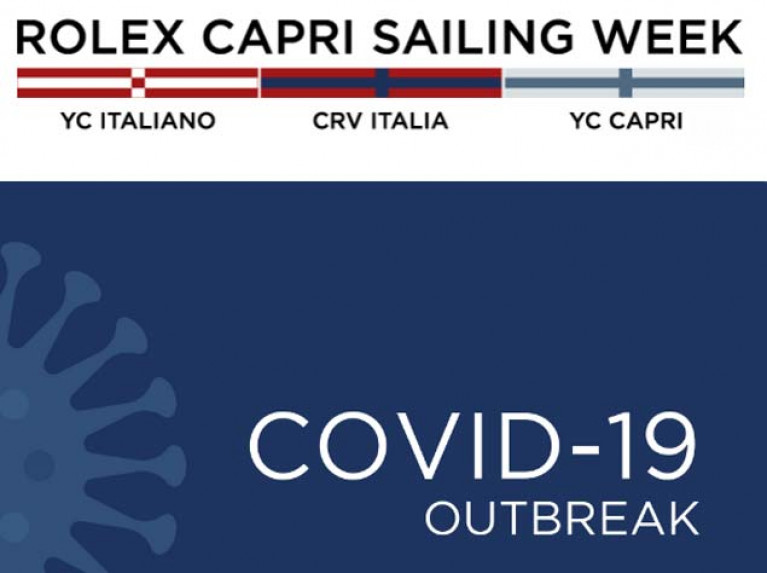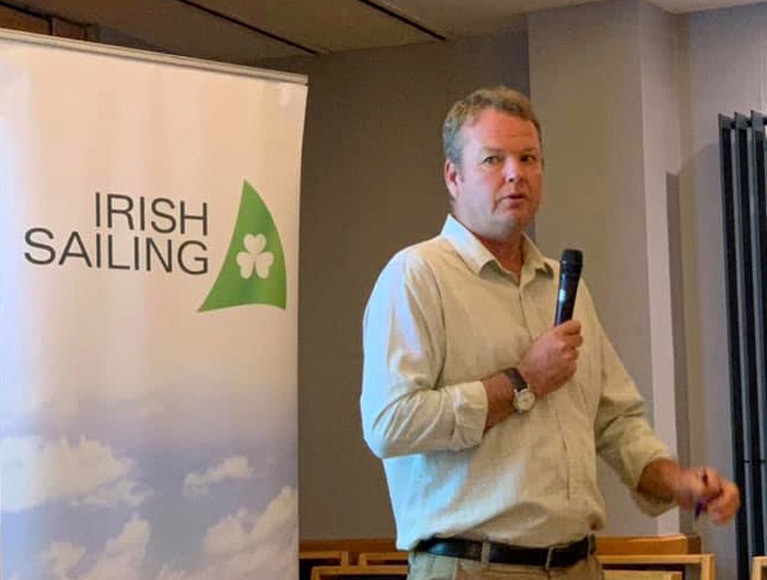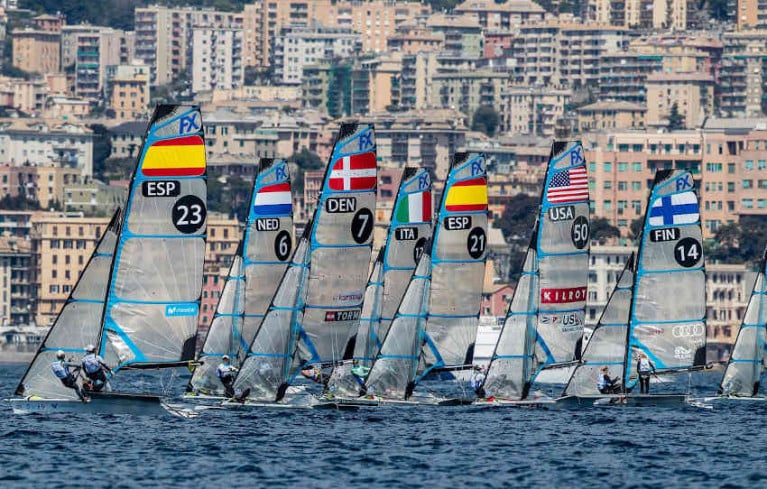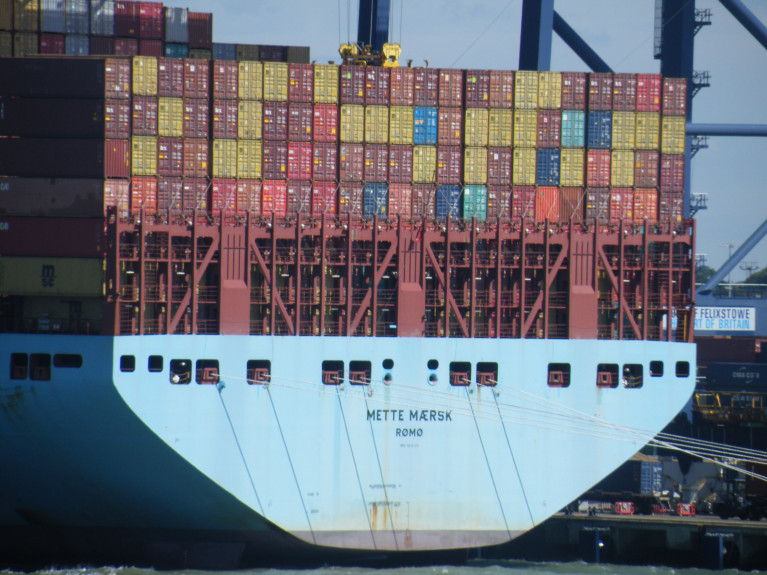Displaying items by tag: COVID19
Neptune Regatta First to Fall to Covid-19
Neptune Regatta, scheduled for April 4th, has cancelled due to the outbreak of Covid-19. The date lies beyond the current period of restriction imposed by the Government, but entries would have to have been in by March 25th. The regatta was to be the first of the rowing season.
Commercial Regatta followed suit today and also cancelled. It was scheduled for April 5th.
The St Michael’s Head of the River (March 21st) has also cancelled.
Cruise Liner Bound For Belfast Rerouted From Italian Ports Over Nationwide Covid-19 Lockdown
A cruise liner bound for Belfast in May has had its itinerary changed to avoid two upcoming port calls in Italy, following that country’s extraordinary national lockdown measures to control the coronavirus pandemic.
According to the Belfast Telegraph, the MSC Splendida was due to dock at Civitavecchia on Saturday 28 March and the following day at Genoa.
However, with quarantine extended to the whole of Italy by its government this past Monday (9 March), MSC Cruises has rerouted the ship to instead dock in Marseille in 28 March and Barcelona on 29 March.
The MSC Splendida is expected to arrive in Belfast Lough on Friday 1 May via Hamburg.
The Belfast Telegraph also reports that a major cruise operator hit hard by Covid-19 outbreaks, and which was due to bring 5,000 people to Belfast on Friday 8 May, has suspended operations for the next eight weeks.
Princess Cruises, whose Diamond Princess in Japan and Grand Princess in California were subjected to quarantine, also operates the Regal Princess — which is at present approaching Cozumel in Mexico to end its current voyage.
Cruise Ships Sail Ahead into Cork Harbour Despite Covid-19 Fears
Cork Harbour's lucrative cruise season will continue as planned, despite coronavirus fears, writes the Irish Examiner.
The Port of Cork said steps have been taken ahead of the arrival of the first cruise liner of the 2020 season.
The Saga Sapphire is due in Cobh on Friday morning with up to 752 passengers and a further 400 crew. It will arrive at the end of a coastal cruise of Ireland and the UK, having already docked in Liverpool and Dublin (yesterday to overnight in port Afloat adds) before setting off back to Dover.
There is just one other cruise liner due this month: the Marco Polo (also Cobh, Afloat confirms), which is scheduled to arrive on March 23. From April onwards, though, the numbers arriving will increase rapidly.
Currently, there are plans for a record 107 cruise liners to visit Cork (majority to Cobh) in the coming months. Passenger numbers were projected to reach 260,000.
For more on the coronavirus struck cruise ship Grand Princess in the US, as Afloat previously reported and a comment from the Port of Cork click here.
J/24 European Championship Cancelled Over Coronavirus Concerns
The International J/24 Class Association has agreed with the Italian Federation of Sailing to cancel the 2020 J/24 European Championship, which had been scheduled for 29 April to 5 May 2020 at Porto San Rocco near Trieste in Italy.
“After consulting the members of the organising committee and the J/24 class, cancelling the European Championship is the responsible and wise decision to make at this time,” said Roberto Sponza, 2020 J/24 European Championship event chairperson.
As reported yesterday on Afloat.ie, all sailing events in Italy have been suspended until Friday 3 April as the country enforces strict measures to control the spread of the virus.
“At this time, we must confront the possibility that these restrictions within Italy could be extended or ended,” said Sponza. “Other European governments may impose similar restrictions on travel in the near future.
“All these restrictions have impact on the competitors who have registered for this year’s European Championship.”
The cancellation will also apply to the 2020 Italian Open National Championship scheduled for May 28-June 2 at Porto San Rocco.
All eyes are now on the World Cup Series event in Genoa, which is expected to begin on Sunday 12 April and represents the final opportunity for Irish sailors and others to grab a spot at Tokyo 2020.
Due to the number of coronavirus cases reported in Italy as a consequence of the global COVID-19 epidemic, the Italian Sailing Federation has suspended all events and competitions on a national basis until next April 3rd.
Only after that date, will organisers be able to confirm if the ROLEX Capri Sailing Week will regularly take place.
The prestigious 66th event was due to be held on the island of Capri and in the gulfs of Naples, Salerno and Gaeta. The week is slated to include the ORC European Championship 2020, and the Italian Offshore Championship 2020 as part of the IMA Mediterranean Offshore Challenge 2020-2021.
Meanwhile, in Ireland, the sports national governing body released a statement last Friday to say that ‘following HSE advice’ on Coronavirus, all events are going ahead as scheduled'.
The statement also says “Should the position escalate and we feel that any updated advice will necessitate restrictions on sailing events in Ireland, we will send out a notice".
Irish Sailing ‘Following HSE Advice’ On Coronavirus, All Events Going Ahead As Scheduled
Irish Sailing confirms it is following HSE advice regarding COVID-19/coronavirus, which at present does not prohibit public gatherings and/or impose travel restrictions other than to China and northern Italy.
“Until further advice is issued, we will assume that all events are able to go ahead as scheduled,” says Irish Sailing chief executive Harry Hermon.
“Taoiseach Leo Varadkar has said the Government is not recommending that ‘at this stage’ any planned large gatherings are cancelled. He also appealed for people not to take unilateral action when it come to closing schools or cancelling events.
“Should the position escalate and we feel that any updated advice will necessitate restrictions on sailing events in Ireland, we will send out a notice through our newsletter.”
Sailors Launch Online Petition To Cancel Genoa Olympic Qualifiers Over Coronavirus Risk
A group of sailors have launched an online petition in the hopes of persuading World Sailing to cancel the upcoming World Cup Series event in Genoa due to the risks of COVID-19, particularly in Northern Italy.
Calling themselves Sailors Against Coronavirus, the group — apparently based in Spain — argues that it is “irresponsible and possibly dangerous to host the Hempel Sailing World Cup in Genoa due to the risks of COVID-19”.
They add: “Having hundreds of sailors, coaches and staff from all over the world stay in Northern Italy and return to their home countries would undue global efforts to contain the virus.
“It is the responsibility of World Sailing to provide safe events for their competitors. Many sailing federations are required compete in Genoa to qualify for the Olympics, which forces them to decide between their safety and a chance to compete at the Olympic Games.
“World Sailing should make the responsible decision to cancel the event and chose a safer location for final Olympic qualifications.”
The Hempel Sailing World Cup Series event in Genoa is scheduled to start on Saturday 11 April and is the last chance for Irish sailors to claim a spot at Tokyo 2020.
Demand in China Slump Causing Record Void in 'Box-Boat' Sailings
Container lines and their reacton to the lack of cargo export demand from China due to the coronavirus-induced (COVID-19) economic shutdown is becoming evident in record numbers of blanked sailings and inactive vessels.
Some analysts now believe that prolonged disruption could result in radical changes to supply chain sourcing by manufacturers, although few see any meaningful short-term alternative to China for large-scale manufacturing volumes.
As previously reported in Lloyd’s Loading List, ongoing factory closures and trucking shortages in China are not only hurting container shipping demand and freight rates, but also posing a threat to 2020 economic growth.
“China’s extended Lunar New Year holidays and the COVID-19 outbreak have seen demand for cargo space out of China reach a record low during February,” noted Alphaliner.
“Over the past three weeks, some 30% to 60% of weekly outbound capacity has been withdrawn from the Asia-Europe and transpacific trade, as well as from intra-regional routes.”
The latest data from Alphaliner offers the clearest evidence yet that lines are doing all they can to stem losses by withdrawing capacity.
According to the shipping analyst, the inactive container fleet reached a massive 2.04 million TEU on 17 February, 8.8% of the global containership fleet.
“In absolute terms, inactive vessel capacity easily surpasses the previous highs of 1.52 million TEU recorded during the 2009 financial crisis, and of 1.59 million TEU recorded in 2016 in the wake of the Hanjin Shipping bankruptcy,” noted Alphaliner.
More Chinese factories were set to boost output this week, and Maersk CEO Søren Skou said that around 90% of factory capacity would be in operation by the first week of March. Much more on the story from Lloyd'sLoadingList here.


























